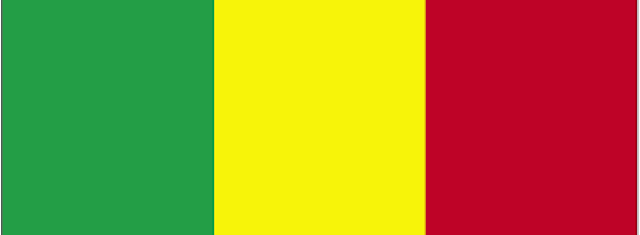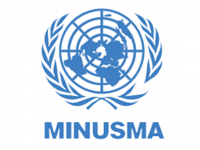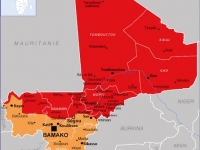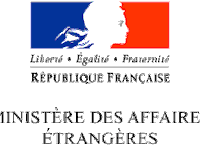Politics
FRANCE CONDEMNS THE ATTACK AGAINST MINUSMA IN MALI ON APRIL 5TH
TWO CHADIAN PEACKEEPERS KILLED & 10 WOUN

Mali Flag (Source: Flags.net)
USPA NEWS -
France condemns the attack on the camp of the multidimensional integrated mission for the stabilization in Mali in Aguelhok, on April 5, during which two Chadian peacekeepers were killed and 10 others wounded.---------------------------------------------------
We offer our condolences to the relatives of the disappeared, to the Chadian authorities and to the United Nations. We wish a speedy recovery to the wounded. Those responsible should be prosecuted and brought to justice. They are subject to international sanctions under United Nations Security Council Resolution 2374 (2017). France reiterates its support for the stabilizing action of MINUSMA in Mali, in support of the implementation of the agreement for peace and reconciliation.
We offer our condolences to the relatives of the disappeared, to the Chadian authorities and to the United Nations. We wish a speedy recovery to the wounded. Those responsible should be prosecuted and brought to justice. They are subject to international sanctions under United Nations Security Council Resolution 2374 (2017). France reiterates its support for the stabilizing action of MINUSMA in Mali, in support of the implementation of the agreement for peace and reconciliation.
RECOMMENDATIONS FROM THE MINSITERE AFFAIRES ETRANGERS TO FRENCH RESIDENTS IN MALI
Because of the terrorist threats prevalent in the Sahelian zone, it is recommended that those traveling to Mali, and our compatriots living on the spot, be vigilant and keep abreast of developments. It is recalled that the risk of bombing and kidnapping in areas classified in red are particularly high. Any project of displacement in these zones is excluded. Resident French nationals are invited to leave at least temporarily. Business trips are still possible in the orange zone, provided that you comply with all the instructions detailed below. Tourism in Mali remains formally inadvisable.
CURRENT SITUATION IN MALI AND RISKS OF TERRORISM AND RISKS INCURRED AND ASSOICATED RECOMMENDATIONS-------------------------------------------------------------------------------------------------------------------------
Several terrorist groups operate in Mali, including Al-Qaeda in the Islamic Maghreb (AQIM), al-Murabitoun, Ansare Dine, the Movement for Unity and Jihad in West Africa (MUJAO), the Macina Liberation Front (LWF) or the Islamic State in the great Sahara. In the north and center of the country, the attacks target primarily the settlements and convoys of the Malian and international military forces. The possible presence of improvised explosive devices or mines on the roads prohibits any traffic by road outside urban centers.-----------------------------------------------------------------------------------------------------------
Attacks are also likely to be conducted in the rest of the country, including against Malian security forces and symbols of Western presence. The risk of an attack in Bamako, especially targeting public places frequented by Westerners (restaurants, hotels, places of leisure, shops, etc.), is particularly high. The attack on "Kangaba Camp" on June 18, 2017, reminded us of the importance of this threat. It is recommended to exercise the greatest vigilance with regard to this risk and to give priority to public places that have a suitable security device, particularly for access control (for example: closing the entire right-of-way, airlock for pedestrian access, emergency exits, guarding, armed surveillance, etc.). Attendance at places where there is no security feature is formally discouraged.For accommodations for business trips, hotels with filtered access must be preferred. Otherwise, it is recommended to prefer accommodation in villas or bed and breakfast discreet.
RISK OF ABDUCTION IN MALI SINCE CASE OF 24 DECEMBER 20-16 IN GAO AND SIKASSO------------------------
The threat of abduction is high in Mali. Several kidnappings of Western nationals have taken place in recent years, including one of our compatriots in Gao on December 24, 2016. The risk is particularly high in the north of the country and in the center. The kidnapping of a Colombian national in early 2017 in the north of the Sikasso region shows a certain geographical extension of the capacities of criminal and terrorist groups.--------------------------------------------------------------------------------
In the rest of the country, business travel by road should preferably be in convoy. North of a line Bafoulabe -Banamba - Segou - Markala - Tominian an escort is desirable. It is recommended to prioritize travel by air and to stay in accommodations with security.
RISKS OF CRIME IN MALI
The lack of state services in much of central and northern Mali has led to a significant increase in banditry and crime. Damage to property and people is very common. It is recommended not to visit the areas concerned.
In the rest of the country, the criminal risk is relatively moderate. It is advisable to adopt a vigilance posture in urban areas. The presence of road cutters has been reported, punctually, on some major roads, especially at night.
Emergency state
The state of emergency is in force throughout Mali.
THE ZONES OF VIGILANCE AFTER TOURISM IN MALI
Tourism in Mali is not recommended on the whole territory.
Zone formally discouraged (zone marked in red on the map)
Companies and NGOs likely to have activities in the red zone must draw up a safety plan taking into account the particularly high level of risks. It is recommended to forward it to the Crisis and Support Center of the Ministry of Europe and Foreign Affairs or to the French Embassy. Occupational travel in this area, when absolutely necessary for these activities, requires particularly robust security measures, including a military escort.
It is not recommended to go to the following areas:
“¢ Regions of central and northern Mali located north of a Bafoulabé -Banamba - Segou - Markala - Tominian line. The cities of Ségou, Mopti and Sévaré remain in the orange zone.
“¢ Malo-Mauritanian border and areas east of the city of Kayes. Given the possible presence of terrorist groups and the risk of kidnapping, it is formally inadvisable to travel between Mali and Mauritania by road. The circulation on the axis "road of hope" / Nioro du Sahel remains risky because of the probability of the presence of armed groups in the region.
“¢ Crossing the Burkina Faso border by road is formally inadvisable.
Zone not recommended, except imperative reason (zone indicated in orange on the map)
The French authorities advise against traveling outside Bamako, unless there is an imperative reason, south of a Bafoulabé - Banamba - Segou - Markala - Tominian line (located in the orange zone). It is recommended to inform the Embassy of France in Bamako of any travel in this area (bamako-fslt.admin-francais@diplomatie.gouv.fr) by communicating your details.
Business trips are possible in this area, subject to the following precautions:
“¢ Ensure that local authorities (district governors and district prefects) are informed of the displacement;
“¢ Favor the convoy travel of at least two or three vehicles, to avoid the risk of being immobilized on an axis;
“¢ North of a Bafoulabé -Banamba - Segou - Markala - Tominian line, an escort is desirable;
“¢ Privilege secure accommodation (hotels monitored by local security forces, guarded villas);
“¢ Have adequate means of communication to give an alert in case of difficulty.
THE SPECIAL SITUATION OF THE AGGLOMERATION OF BAMAKO-----------------------------------------------------------
The French traveling to Bamako are urged to be very vigilant in the face of the high risk of a terrorist attack (see above). The greatest vigilance is required throughout the capital. The precautions outlined in this tab should be fully respected.
Liability for this article lies with the author, who also holds the copyright. Editorial content from USPA may be quoted on other websites as long as the quote comprises no more than 5% of the entire text, is marked as such and the source is named (via hyperlink).








